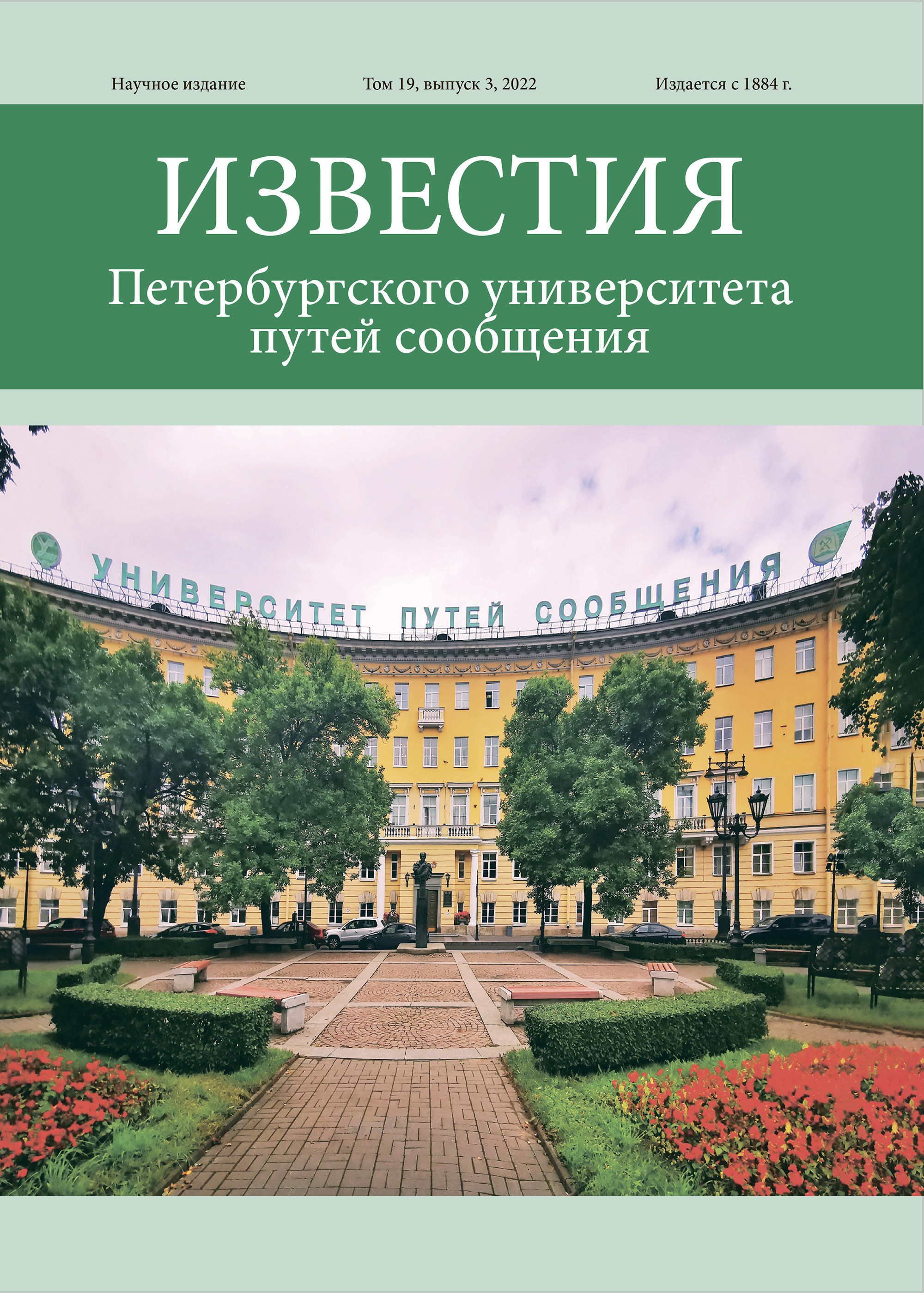Russian Federation
Purpose: To conduct analytical comparison of energy efficiency (specific volumetric capacity) of transportation by rail, to analyze passenger and freight turnover dynamics by years, to calculate relative error in the consumption of fuel and energy resources by rail transport, also to study the statistics of fuel and energy resources consumption for to carry out this work by the countries: Russian Federation and United States of America. To conduct analytical study of discrepancy and statistical error between the data of the world and Rosstat national statistics. To show the relation between energy efficiency of rail transportations and CO2 emission level. To study the trend of changes in annual specific volumetric capacity and to suggest possible reasons for dynamics presence. Methods: Analytical work with statistical data from international and domestic digests in annual dynamics by picked countries; comparison and conclusions based on considered data. Results: Comparative analysis of change dynamics for passenger and freight turnover annually was carried out, statistical deviation dynamics for fuel and energy resources consumption data was calculated, fuel main types consumption by rail transport was considered, energy consumption efficiency by this type of transport was calculated and energy volumetric capacity for rail transport of leading countries of the world was analyzed. Practical significance: Environmental pollution problem plays a significant role in the world at the moment. Railway transport, which plays an important economic role in every country, is a major energy consumer. Equally to other energy consumers, on rail transport, it’s constantly held the analysis of fuel usage efficiency and of CO2 emission volumes. Comparative analysis of changes in specific energy volumetric capacity annually with hypothetical conclusions on reasons, leading to given dynamics, will make it possible to predict and provide for a timely response on the basis of first prerequisites of economic and general political changes. Analysis of energy efficiency of a railway transport will demonstrate the state of Russian railways in a dynamic comparison with Western countries and will allow to analyze positive experience of the industry development in other countries with the possibility of application in our country.
Railway transportation, reduced freight turnover, passenger turnover, energy efficiency, environment, CO2 emissions, specific energy volumetric capacity
1. Railway handbook Energy consumption and CO2 emissions OECD // IEA, 2013 International Energy Agency 9 rue de la Fédération 75739 Paris Cedex 15. - France. - URL: https://uic.org/IMG/pdf/2013_uic-iea_railway_handbook_web_low.pdf.
2. Enwrgy Balances of non-OECD Countries 10 Aug 2015. 580 pages / English // International Energy Agency. - URL: https://www.oecd-ilibrary.org/energy/energy-balances-of-non-oecd-countries_19962843-en.
3. Transport v Rossii. 2020: Statisticheskiy sbornik // Rosstat. - M., 2020. - T. 65. - 108 s. - URL: https://rosstat.gov.ru/storage/mediabank/UbzIvBZj/Transport_2020.pdf.
4. Railroad Facts. 2022: Statisticheskiy sbornik // SShA, ezhegodnyy. - URL: https://www.american-rails.com/today.html.
5. Otchet o deyatel'nosti OAO «RZhD» v oblasti ustoychivogo razvitiya akcionernoe // Otkrytoe obschestvo «Rossiyskie zheleznye dorogi». - M., 2020. - URL: file:///C:/Users/Adm/Downloads/Otchet%20ob%20ustoychivom%20razvitii%20za%202020%20g..pdf.
6. Titova T. S. Ocenki energoeffektivnosti raboty zheleznodorozhnogo transporta primeneniem specializirovannyh udel'nyh edinic izmereniya / T. S. Titova, A. M. Evstaf'ev, M. Yu. Izvarin, M. V. Evstaf'eva // Izvestiya Peterburgskogo universiteta putey soobscheniya. - 2017. - T. 14. - № 1. - S. 119-126.









